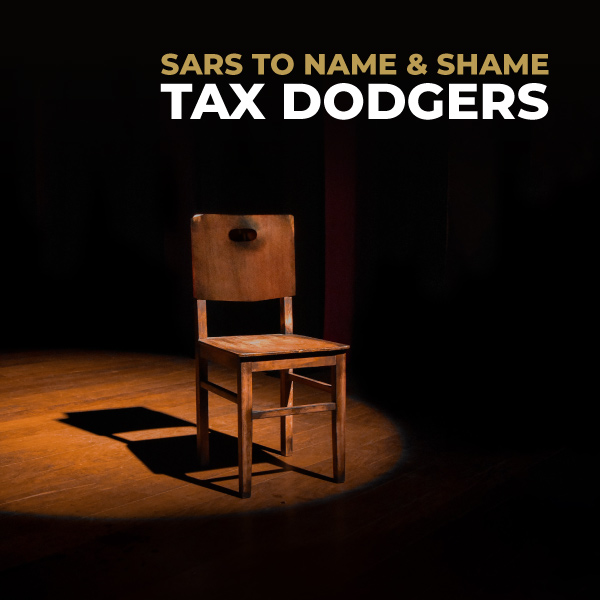SARS TO NAME AND SHAME TAX DODGERS
It seems the SARS Commissioner had an epiphany – make an example of delinquent taxpayers so others will fall in line. Apparently, following SARS’ media briefing on 30 July 2020, this is a deterrence tactic SARS will use in the coming filing season.
Why have SARS never done this before?
Surely, this is not new wisdom; why have SARS never done this before? We have asked this question ourselves many times – with many reports of tax evasion in the media, including some high-profile unanswered cases emerging from the multitude of commissions of inquiry, why have we not seen anyone in handcuffs?
The answer may be what many suspects, which is that SARS is sitting idle. Or, perhaps, SARS is in fact hard at work rounding up tax dodgers but there is no way of telling because of SARS’ devotion to the secrecy provisions in the Tax Administration Act. These provisions can be found in Chapter 6 of the Tax Administration Act and generally dictate that SARS must preserve the secrecy of taxpayer information.
Lest we forget, with the current Commissioner at the helm, on the strength of these provisions, SARS staunchly refused to share the tax records of former president Jacob Zuma with the Public Protector.
So, what has changed?
Is SARS allowed to “name and shame”?
There are very limited circumstances where taxpayer information may be disclosed, such as divulging the information in terms of a court order, if the taxpayer gives written consent or where a specific Act expressly overrides the secrecy provisions.
Section 74, however, determines that the Commissioner may publish the name of a taxpayer where they are convicted of a tax offence. For those who believe a “tax offence” is something committed by complete delinquents, think again. Tax offences range from the failure to submit a return or simply failing to notify SARS of a change in your registered particulars, to more serious transgressions relating to tax evasion. When publishing the offender’s name, the Commissioner may also disclose the particulars of the offence and the fine or sentence imposed.
In other words, unless any of the exceptions apply (which is unlikely), SARS may only name and shame you if you are convicted of a tax offence.
All bluff and bluster?
If the naming and shaming will simply involve publishing the names of taxpayers who failed to submit their returns, then this is not a novel idea. SARS did this in 2018 where it published several names of taxpayers, including some well-known public figures, most of whom had to pay relatively modest fines. This initiative seemingly had little effect.
The problem is that unless there is a legislative amendment that would make the secrecy provisions less strict, SARS must first obtain a conviction before it can publish an offender’s name. For more serious tax offences in particular, this will take time. So, unless SARS recently secured a surge of convictions which are yet to be published, it is unlikely that the Commissioner’s briefing signals a watershed moment.
Any initiative that would improve the tax system’s deterrence factor is a welcome development, but a handful of taxpayers who are given a slap on the wrist will not do the trick. If SARS wants to send a message that carries any weight, we need to see some tax dodgers in orange jumpsuits.
![2025-logo-[Recovered] Tax Consulting South Africa](https://www.taxconsulting.co.za/wp-content/uploads/2025/01/2025-logo-Recovered.png)



